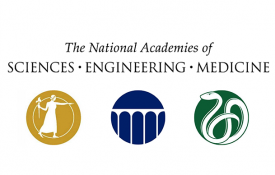-
A psychology experiment unexpectedly discovered a man who can’t cooperate because of brain damage
When someone’s especially cooperative, don’t thank their easy-going nature, but give credit to their brain. A team of New York University psychologists hypothesized that cooperation depends on the dorsolateral prefrontal cortex (DPC), an area of the brain in the frontal lobe involved in regulation control and goal pursuit; after all, cooperation often requires reigning in one’s naughty impulses to take everything for themselves. To test their theory, the researchers conducted an experiment involving participants with brain damage to the DPC—and discovered someone who would not cooperate at all.
-

People With Happy Spouses May Live Longer
Having a happy spouse can lead to a longer marriage, and now study results show that it’s associated with a longer life, too. Visit Page
-

Help NIH Survey Accomplishments of Health-Related Behavioral Science Research: Comment by July 31
The National Institutes of Health Office of Behavioral and Social Sciences Research is cultivating a list of public health and healthcare accomplishments made possible by behavioral and social sciences research and wants your help as it puts the list together. Psychological scientists can submit what they view as accomplishments of the field and comment and vote on existing submissions. The deadline for submitting a comment is July 31, 2019. Visit Page
-

Submit a White Paper on Alzheimer’s Disease to the National Academies
The National Academy of Sciences Board on Behavioral, Cognitive, and Sensory Sciences invites scientists to submit white papers on the topic of Alzheimer’s disease and Alzheimer’s disease-related dementias in the first phase of a new decadal survey aimed at reducing the burden of these diseases. Visit Page
-

New Research From Psychological Science
A sample of research exploring racial bias in perception of size and strength, pathways linking testosterone and aggression, and reactivation of previous experiences. Visit Page
-
Three tips for giving a great research talk
Last month, Leah visited Neil’s university to give a colloquium talk about her neuroscience research. She spoke about things that Neil, a social behavior researcher, doesn’t know much about—brain parts with fancy names such as the “ventrolateral prefrontal cortex.” But he was fully engaged with her talk—and didn’t spend any time scrolling through his Twitter feed (promise!)—because she took the time to explain that what she was really trying to figure out was why teenagers learn differently than adults. Leah communicated the topic in a way that could resonate with a broad scientific audience and enrich Neil’s understanding of his own work.

